20 years of economic development expertise.
DRA Resources addresses systemic poverty through research, program design, and implementation. We work with clients on innovations that increase incomes, build wealth, and improve local economies.
What We Do
-
Our services enable cost-efficient investments that produce positive change in the lives of farmers, entrepreneurs, and others. We calculate social and financial return on investment (ROI) for new economic development strategies, programs, and initiatives. ROI may be demonstrated by measuring change at the level of individual income or community economic impact. Our work has included monitoring and evaluation plans, data collection and analysis, and facilitated focus group and key informant interviews.
-
We design and implement economic development projects, ranging from local and regional activity to large-scale, multi-stakeholder initiatives funded by the U.S. Department of Agriculture or Department of Labor. We work with clients from ideation through implementation, and can assist with proposal development, ensuring contractual outcomes, or staff training to foster internal organizational capacity. We advise clients on grants management and compliance to guide implementation, achieve results, and assure project integrity every step of the way.
-
Working closely with local, regional, and national stakeholders, we help clarify community needs and opportunities — and develop stakeholder-informed responses. Our work has included survey development and dissemination, meeting facilitation, or program impact studies. It has also included development of facilities for under-resourced farmers, ranchers, and entrepreneurial food processors. We are especially interested in developing regional systems that can transform local economies, we specialize in engaging minority and women-owned small businesses and connecting them to opportunities.
-
We advise business support organizations, economic development agencies, and funders aiming to bolster small business ecosystems. As experienced entrepreneurs, we have advised multiple microbusinesses on launch, growth, and operation. Our goals in this work are to bolster income for business owners and to support wealth-building in lower-income communities. We focus on working with cohorts of microbusinesses, specifically those that are minority- or women-owned.
Leadership
Danita and Juan are Latino entrepreneurs from working class backgrounds with lived and working experience in small town economies. Together, they have started, managed, funded, and/or advised more than 15 enterprises, including value-added products, retail, wholesale, and service businesses. DRA Resources is a Federally certified 8(a) minority & women-owned business.
They have worked with farmers, food chain enterprises, and support organizations in United States, Europe, Mexico, and Central America. Over the last 15 years, DRA Resources has secured and directed over $60m to agricultural systems change and worked for a decade toward creating a vibrant, sustainable agricultural economy in rural Mississippi and the U.S. southeast.
-
President and Principal Consultant
Danita Rodriguez is a seasoned economic development specialist, entrepreneur, and trusted advisor with over 25 years of experience advancing economic opportunity in rural and emerging communities. She founded DRA Resources in 1999 to help organizations drive impact through strategic planning, organizational learning, evaluation, and data-informed decision-making.
With a strong background in small business development, Danita has launched and invested in multiple enterprises across rural areas in Arizona and Pennsylvania. Her work is grounded in a deep personal commitment to community empowerment, shaped by her upbringing in a bilingual, Latino household in a small mining town in the rural Southwest.
A passionate advocate for individuals striving to overcome poverty, Danita has helped raise over $90 million for local and regional development initiatives. She holds a Master of Science in Economics from the University of Arizona and continues to lead with purpose, vision, and an unwavering dedication to inclusive growth.
Judith Silver
Agriculture & Economic Development Specialist
Judith is a federal project coordinator with over 35 years of experience in rural farming communities. She brings a valuable bicultural perspective to the leadership team. As the daughter of a South Korean immigrant, Judith is deeply committed to community-centered development. At DRA Resources, she steers efforts to secure funding for sustainable agriculture and rural economic advancement, drawing on her lived experience and strategic expertise to improve economic stability and local infrastructure in regions with limited resources.
Judith is passionate about empowering small-scale producers and grassroots organizations by making complex growth opportunities more accessible. She holds a Master of Arts in Education from Grand Canyon University and a Bachelor of Science in Family and Consumer Resources from the College of Agriculture at the University of Arizona.
-
Project and Finance Manager
Juan Carlos is a bilingual project and finance professional with extensive experience managing fiscal operations for federally and state-funded programs. With a strong background in grant administration, compliance, and budget oversight, he has successfully supported various initiatives across the nonprofit, public, and private sectors.
Juan specializes in implementing financial systems, streamlining reporting processes, and ensuring adherence to complex regulatory requirements. He is skilled in coordinating with cross-functional teams, reviewing financial documentation, and guiding organizations through audits, drawdowns, and budget modifications.
Gulf States Food System Solutions
Leveling the playing field for local agricultural producers and ranchers throughout the South.
As part of its long-standing commitment to creating sustainable income for specialty crop farmers, DRA Resources is a managing partner in a set of regional initiatives focused on food production and sales in Mississippi, the Mid-South, and Southeast.
The collaborative designs and develops strategies for strengthening the technical farming and business capacity throughout the region. The managing partners and stakeholders include several small business, nonprofits, and farm operations.






